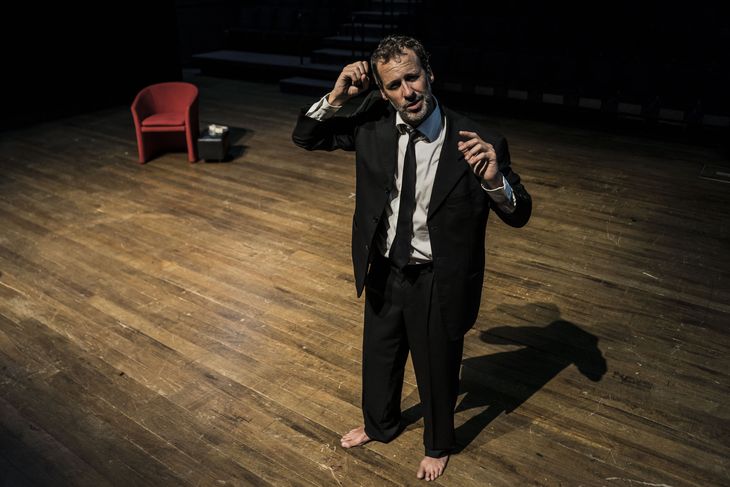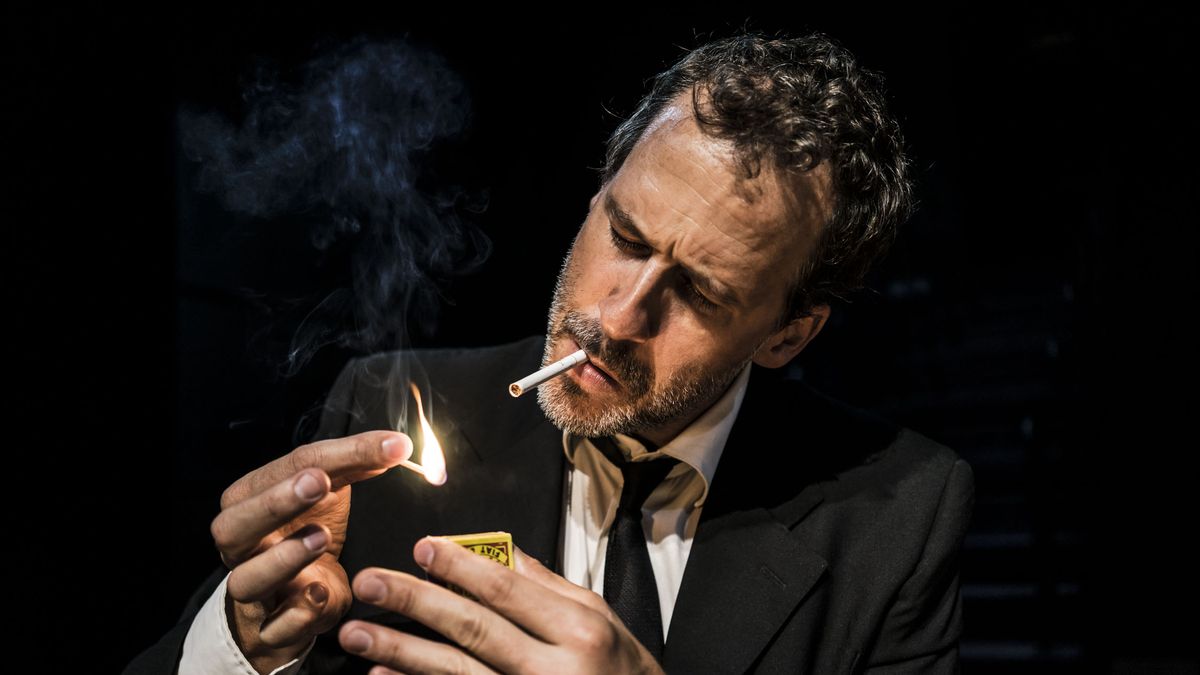“The enormous number of theater audiences in Buenos Aires is a treasure that must be taken care of, not everyone has it, everyone goes to the theater,” says Rogelio García, Uruguayan actor and producer of “Tom Pain (based on nothing)”, of Will Enofinalist text for the 2005 Pulitzer Prize.
Garcia It was the Major Prize in the Teatro del Mundo Awards, awarded by the UBA, in 2017 and has performed 100 performances in theaters in Argentina, Uruguay, Spain, Chile and the USA. Now he appears again at El Extranjero, on Saturdays at 10 p.m. We spoke with Garcia.
Journalist: What are those moments in your life that you narrate like, your pain, your adulthood, why dysfunctional?
RG: He narrates the death of his dog, a bee sting, and his adult life, a love story. In the narrative, beyond the pain there is a key to how he lived those moments at home, with his family and the management of that pain. He was not a child with a favorable environment, he was not the kid who was petted often. Dysfunctionality occurs based on the lack generated by poor pain management. When he arrives very hurt, no one notices, no one notices, little time is dedicated to him. This generates defective emotional equipment. As a parent, I wonder how we deal with children’s issues, how we can influence their quality of adult emotional life.
Photo TomPain Robert Yabeck in low.jpg
Q.: Why the parenthesis of the title, based on nothing?
RG: The author did it with a couple of intentions, according to what he told me. In the title there is a game with Thomas Pain, who is one of the precursors of American democracy. Based on Nothing is to clarify that it is not based on those characters. The author wanted to try to express the idea of how the biggest and most complicated things are built with elements as simple, as small as nothing itself. He relates it to the way the universe is built, by particles of carbon, hydrogen, oxygen and so on. Personally, I am very interested in this contradiction because one expects something based on a historical novel or real events and this is based on nothing. The nothing in that title is nothing more than an ordinary human being, who walks down the street and goes unnoticed in the eyes of everyone, that is where great things and humanity are built.
Q: What is it about this text that was a Pulitzer finalist in 2005?
RG: It has a very interesting poetic flight. Obviously in translation the poetics suffer a lot but it is always seen in the great authors. It has a combination to deeply treat pain with humor. The experience of pain and love is transversal to the entire human being, the author achieves it in a profound way without skipping important things and without stopping laughing about it. It renounces a conventional structure of dramaturgy and formulas that play for the comfort and pleasure of the viewer. This work is structured in a way that serves what it wants to tell, based on certain particular ideas that make it very original. Surely it is uncomfortable for the viewer even from humor, but it is like life itself, it reflects on pain, it is uncomfortable but it is empathetic, it does not attack, it does not hurt, it makes you reflect. He laughs at how ridiculous our handling of these things is.
Q.: To what do you attribute the success in Montevideo?
RG: We thought it was a project to do a few shows, we programmed only five and almost a hundred were done in five countries. It became surprising. We work hard with the director to serve the text in the most faithful way. The public liked that this simple man from the street like Tom Pain, who tells deep stories. The Uruguayan likes that simplicity and this is a simple guy who stands up, tells, moves being a nobody. Their pain is similar to everyone’s, or perhaps worse. I was obsessive when adapting the translation to be as faithful as possible to his style and so that the words came across in a friendly way. We were loving, honest, respectful, we premiered in a very nice room but there are not always good results. For a work to be successful there are always unfathomable mysteries.
Tom Pain. Santiago Bouzas_13.JPG

Q: How do you relate Eno to Beckett?
RG: When I read it in the first lines it reminded me of Beckett, which begins with absurd contradictions from the beginning and has to do with humor. Existentialism, very deep philosophical themes and with humor. I was nothing original, there was a common comparison that Eno is aware of and grateful for. He is also compared to Edward Albee. He is a Beckett of this era.
Q.: How do you see the theater in Montevideo and Buenos Aires?
RG: In Buenos Aires, effervescent and vast in its proposal, I don’t know what other country could have that alternative circuit, although I also see it hit by the current circumstances that make it not viable. I see theater friends who carry out many activities to support themselves and have little time or desire left to do theater. I was surprised post-pandemic by the number of people who returned to the theaters but at the same time the cuts are working against it. Montevdeo is a square 10 or 15 times smaller, we are not in a very effervescent moment but there are some gems a year but we have a big gap with the rest. There is a big difference between how official national comedy is and independent theater to the detriment of independent theater. There is a law but it has no regulation and therefore there is no aid.
Source: Ambito
David William is a talented author who has made a name for himself in the world of writing. He is a professional author who writes on a wide range of topics, from general interest to opinion news. David is currently working as a writer at 24 hours worlds where he brings his unique perspective and in-depth research to his articles, making them both informative and engaging.




